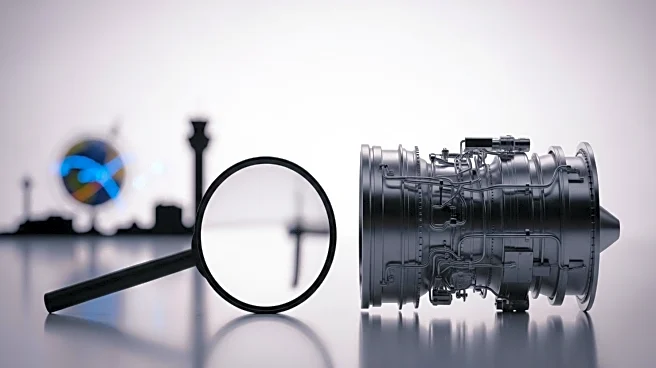What's Happening?
Boeing and Pratt & Whitney (P&W) are seeking regulatory relief from the Federal Aviation Administration (FAA) to extend the timeline for redesigning the PW4000-112 turbofan engines used in Boeing 777 aircraft. This request follows several in-flight fan-blade failures that have caused significant engine damage and, in some cases, engine fires. The companies are working on design changes to improve engine safety and are asking for exemptions from certain testing rules to expedite these improvements. The FAA has set a deadline of March 4, 2028, for implementing these changes, but Boeing and P&W are requesting an extension to 2033, citing the complexity of the redesign and limited engine shop space.
Why It's Important?
The request for an extension and regulatory exemptions is significant as it impacts the safety and operational timelines of Boeing 777 aircraft powered by PW4000 engines. United Airlines, the only U.S. carrier operating these engines, could face operational challenges if the redesign is delayed. The situation underscores the importance of addressing safety concerns promptly to maintain public trust in aviation safety. The FAA's decision will affect airlines' ability to continue using these aircraft without interruption, potentially influencing fleet management and financial planning for affected carriers.
What's Next?
The FAA is expected to take more than the usual 120 days to respond to the exemption requests due to the complexity of the issues involved. Meanwhile, the Air Line Pilots Association has expressed concerns about the proposed timeline extension, urging Boeing and P&W to expedite the redesign process. United Airlines has also requested a five-year extension, indicating the current timeline is not feasible. The outcome of these requests will determine the future operational status of the affected 777 aircraft and could lead to further regulatory actions or industry responses.









